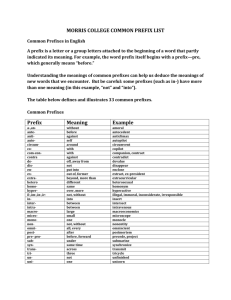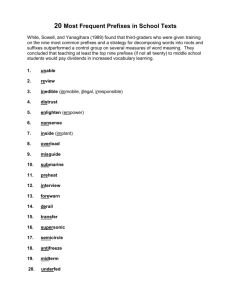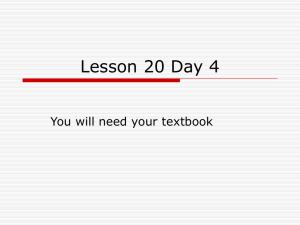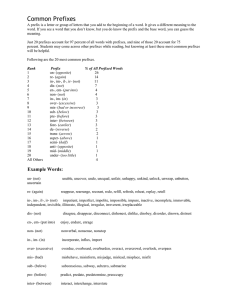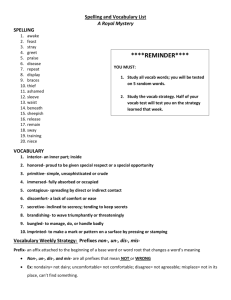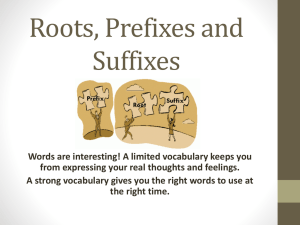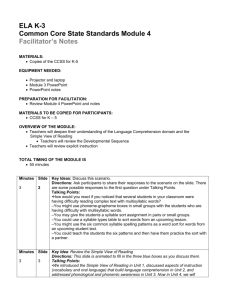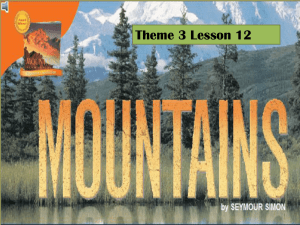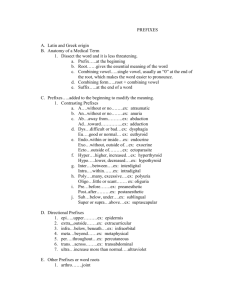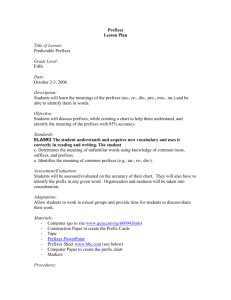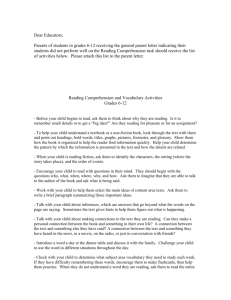Reading Comprehension and Vocabulary Activities
advertisement
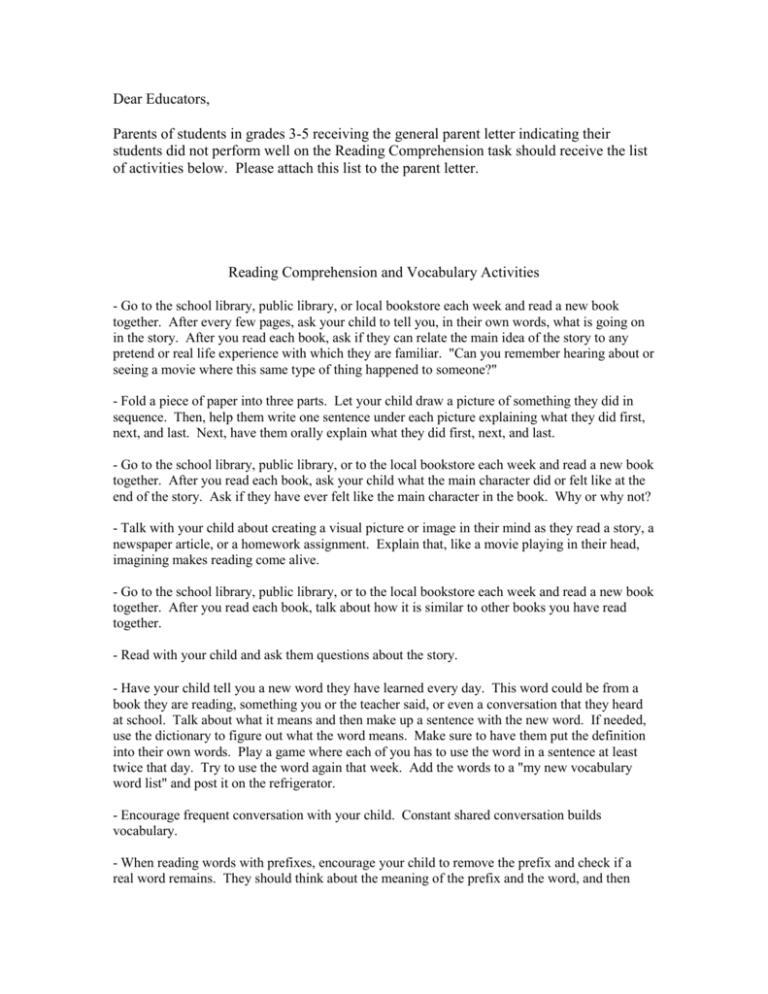
Dear Educators, Parents of students in grades 3-5 receiving the general parent letter indicating their students did not perform well on the Reading Comprehension task should receive the list of activities below. Please attach this list to the parent letter. Reading Comprehension and Vocabulary Activities - Go to the school library, public library, or local bookstore each week and read a new book together. After every few pages, ask your child to tell you, in their own words, what is going on in the story. After you read each book, ask if they can relate the main idea of the story to any pretend or real life experience with which they are familiar. "Can you remember hearing about or seeing a movie where this same type of thing happened to someone?" - Fold a piece of paper into three parts. Let your child draw a picture of something they did in sequence. Then, help them write one sentence under each picture explaining what they did first, next, and last. Next, have them orally explain what they did first, next, and last. - Go to the school library, public library, or to the local bookstore each week and read a new book together. After you read each book, ask your child what the main character did or felt like at the end of the story. Ask if they have ever felt like the main character in the book. Why or why not? - Talk with your child about creating a visual picture or image in their mind as they read a story, a newspaper article, or a homework assignment. Explain that, like a movie playing in their head, imagining makes reading come alive. - Go to the school library, public library, or to the local bookstore each week and read a new book together. After you read each book, talk about how it is similar to other books you have read together. - Read with your child and ask them questions about the story. - Have your child tell you a new word they have learned every day. This word could be from a book they are reading, something you or the teacher said, or even a conversation that they heard at school. Talk about what it means and then make up a sentence with the new word. If needed, use the dictionary to figure out what the word means. Make sure to have them put the definition into their own words. Play a game where each of you has to use the word in a sentence at least twice that day. Try to use the word again that week. Add the words to a "my new vocabulary word list" and post it on the refrigerator. - Encourage frequent conversation with your child. Constant shared conversation builds vocabulary. - When reading words with prefixes, encourage your child to remove the prefix and check if a real word remains. They should think about the meaning of the prefix and the word, and then combine the meanings to figure out the combined word. They should then ask themselves if the meaning makes sense in the sentence being read. - Words with prefixes and suffixes are increasingly frequent in grades 3-5. The three most frequent prefixes (un-, re-, in-) account for 51% of all prefixed words. If students know that “un” often means not, “re-” means again, and “in-” means not, they can use this information to figure out a word’s meaning. You can make a game with your child to see if they can be a “word detective” to determine how many words they can find that start with those prefixes. Have them start three sheets of paper with “un-,” “re-,” and “in-” at the top, and each time they find a word, they can write it down and write a definition of the word next to it. - Use a photo from an album and ask your child to re-tell what happened the day the picture was taken. Encourage the use of vocabulary associated with the setting of the picture (e.g. tractor, milking, crops) and the use of sequencing words such as first, next, and last to provide the proper order of events. - Turn off the television and read together. Even children's picture books have a higher level of vocabulary words than prime time television. Reading magazines, newspapers, fiction, and nonfiction aloud with your child is a great way to increase their oral vocabulary.
